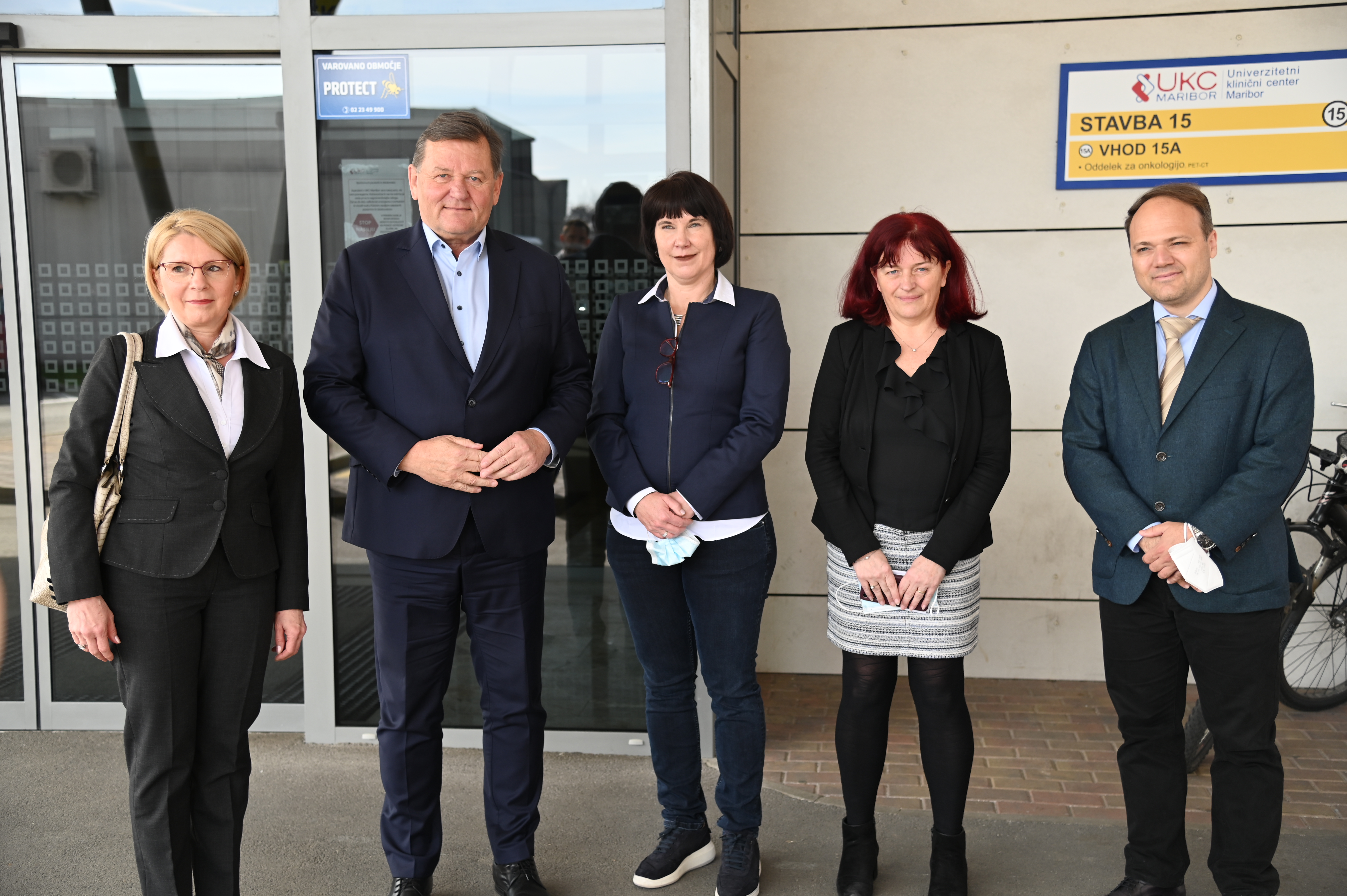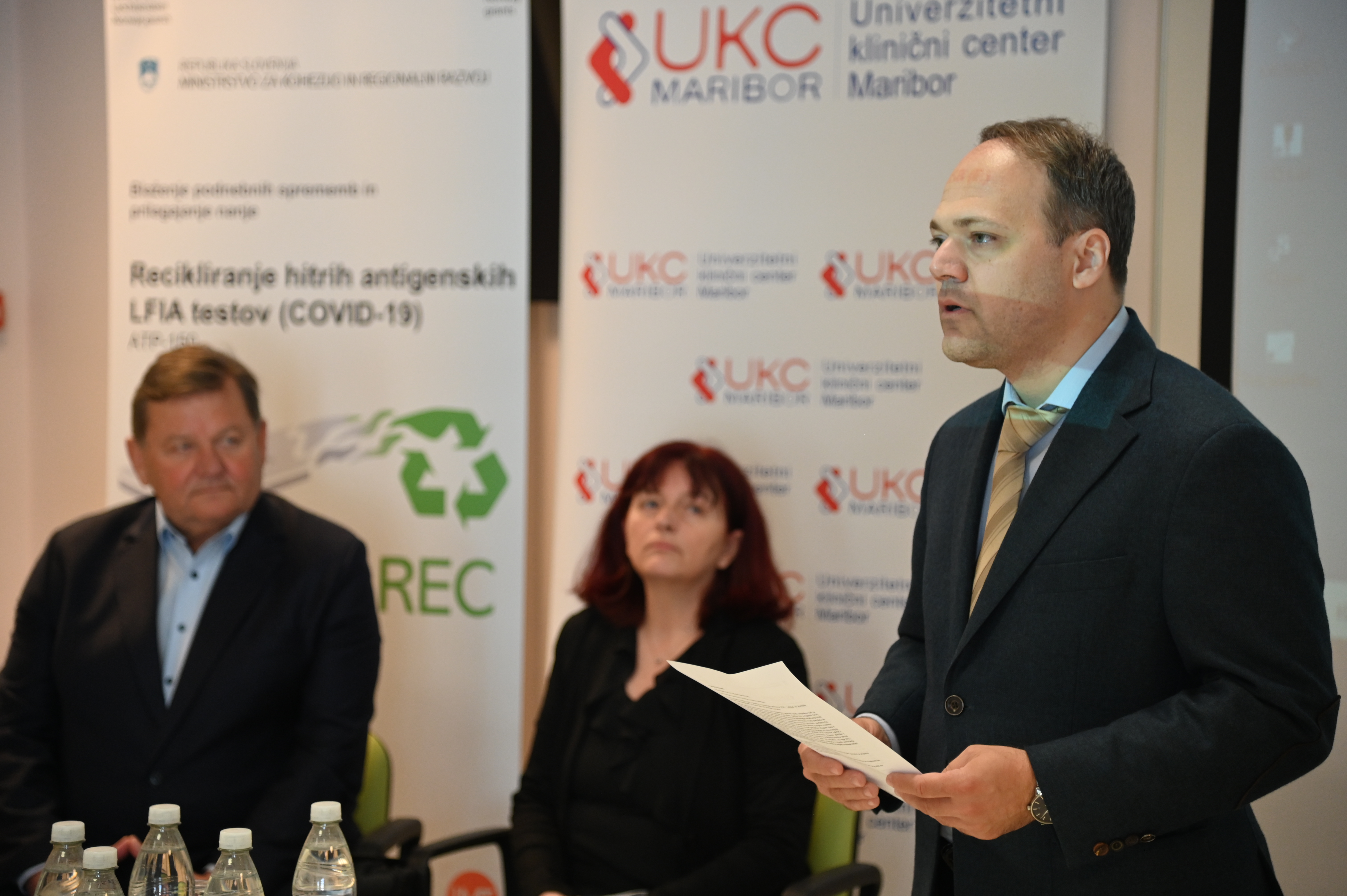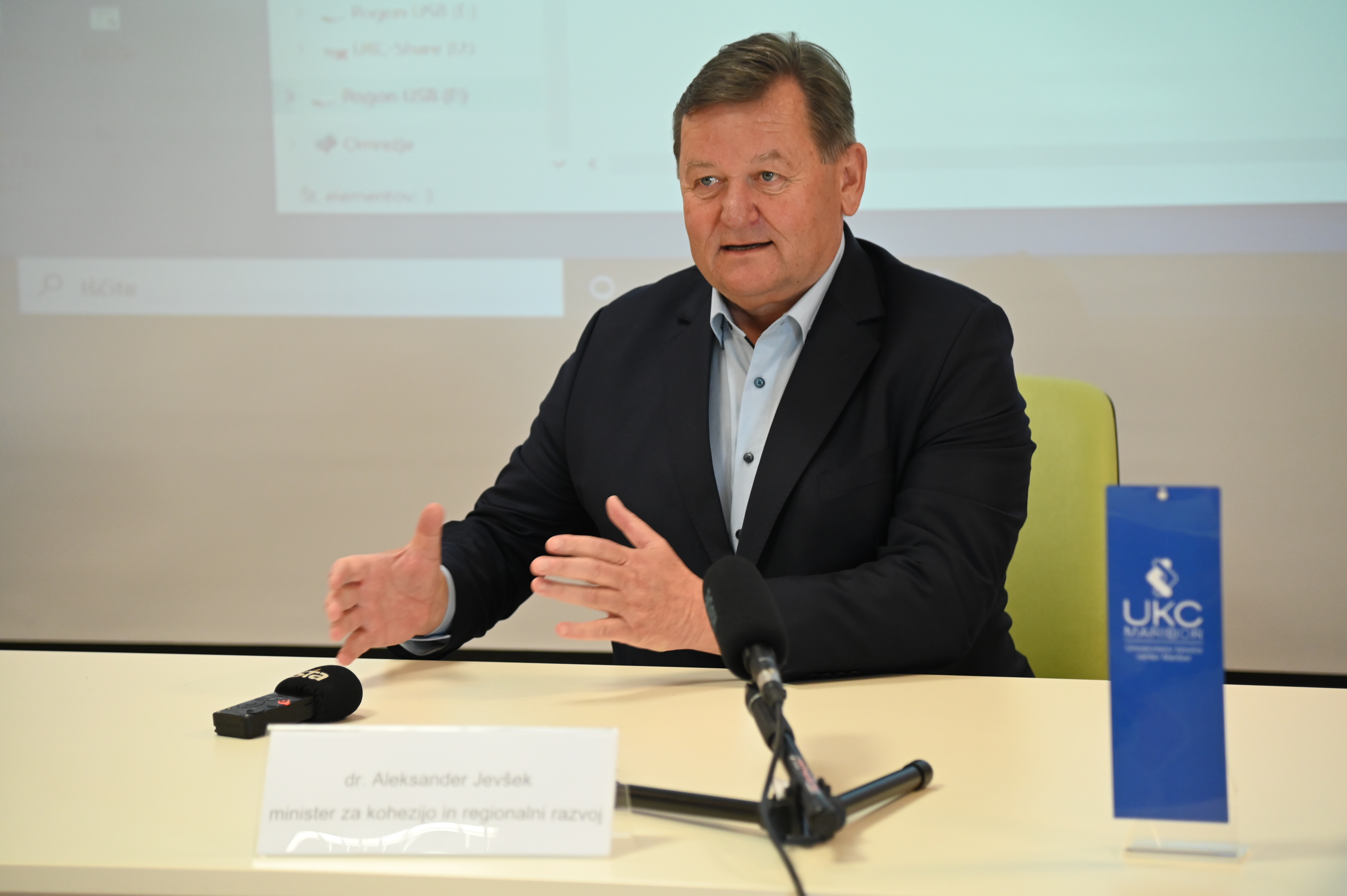
24 March 2023 – The University Medical Centre Maribor (UKC Maribor) hosted a presentation of the LFIA–REC project to introduce the recycling of rapid antigen tests for COVID-19 with the support of the Norway Grants. “In addition to innovation, the added value of this project is that it brings together the University of Maribor, the local medical centre and companies,” said Aleksander Jevšek, Minister of Cohesion and Regional Development.
One of the consequences of the COVID-19 pandemic is the accumulation of large quantities of waste, including rapid antigen tests. The recycling project aims to reduce this waste by separately recycling the white plastic and the gold nanoparticles that make up the rapid antigen tests.
According to Martin Rakuša, project manager at UKC Maribor, their facility alone generated 1854 tonnes of waste in 2020, 276 tonnes of which was an infectious waste, and around 2000 rapid antigen tests per week. It is therefore important for the hospital to find a way to recycle as much waste as possible, Rakuša said.

Project leader Dr Rebeka Rudolf from the Faculty of Mechanical Engineering in Maribor said that once recycling becomes a reality, other healthcare institutions and individuals will be invited to collect used rapid antigen tests so that they can dispose of them in health centres: „At the moment, we incinerate these tests, which are considered hazardous waste. When we incinerate one million rapid tests that use gold nanoparticles for the markings, we throw away 0.1 grams of gold and 5,000 kilograms of plastic used for the cases. This represents an estimated value of €15,000”.
Her colleague Tilen Švarc explained that once the materials are separated, the recycled plastic can be used to make electrical wiring enclosures, while gold nanoparticles can be used especially in many cosmetics and optical products.
“This is an innovative project that follows the concept of the circular economy. It follows the objective of easing the burden on the environment, or the green policy, which is also a priority area of the European Cohesion Policy and the Norway Grants, therefore we will continue to work towards co-financing such projects in the future,” said Minister Jevšek in his opening address. He also stressed the importance of bringing together different stakeholders, both public institutions and companies: “In addition to innovation, the added value of this project is that it brings together the University of Maribor, the local medical centre and companies”.
According to Minister Jevšek, Slovenia has received around €40 million from the Norway Grants in the outgoing period. The Minister announced a meeting with donors from Norway next week, from where he expects to receive approximately the same amount in the next period.

In addition to the UKC Maribor and the Maribor Faculty of Mechanical Engineering, the project, which has a total value of just over 700,000, also involves the Faculty of Polymer Technology, the Institute of Metals and Technologies, and the companies Plastika Skaza, Surovina and Zlatarna Celje.
Recording of the press conference: